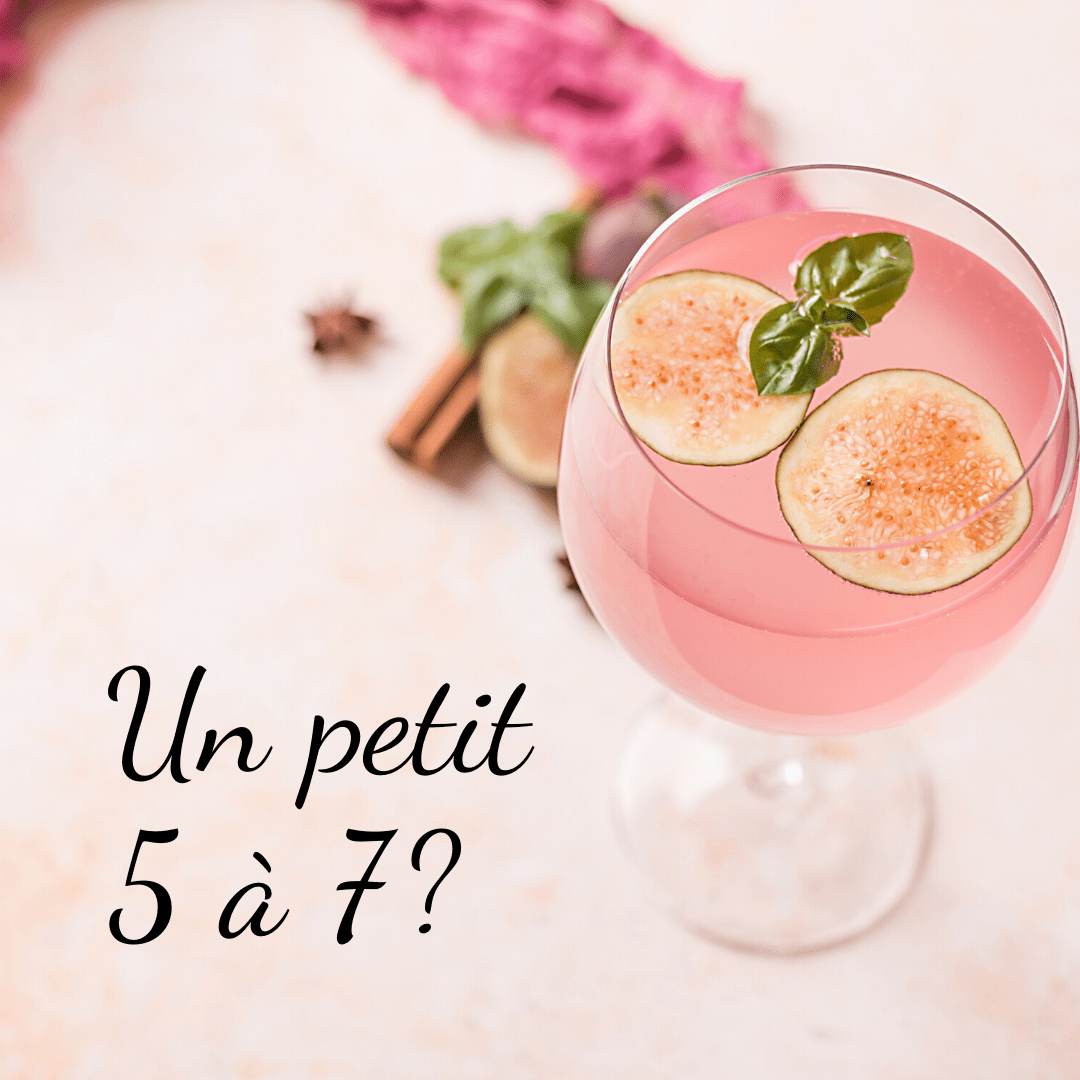Have you ever said something in French which provoked the opposite reaction of what you were expecting?
You most probably committed a slight faux pas, which literally means ”wrong step” in French!
We often discuss that embarrassing/hilarious topic with our students! The important thing to realise is that it is perfectly normal to make faux pas when living abroad. As we are not always familiar with our new country’s language and social etiquette, we will inevitably do or say something considered inappropriate. Let’s say that I have plenty of embarrassing stories to share on that subject, having previously lived in Germany!
The Canadian in me wants to say sorry, but in the end, it is all about the learning process, eh?
Here are 5 Faux Pas to avoid when speaking French!
1. You Say Goodbye And I Say Hello!
If you want to stick out like a sore thumb as a newcomer to a French-speaking city, make sure to reply to greetings like Bonjour! with greetings in your own language.
Last time I went to my favourite café (feels like years ago now!), I noticed that when a lady was greeted by a very happy Bonjour!, she panicked, paused for 5 seconds, and finally replied with a Hello there! How’s it goin’?
She had clearly never watched Walt Disney’s Beauty & The Beast. How do the villagers interact with Belle at the beginning of the movie? Bonjour! Bonjour! Bonjouuuur!!!! (By the way, I always thought that movie was about me… You know, IsaBelle! I used to watch the French version all the time as a child!)
Please, please, please, I literally beg you to learn and use the following basics when interacting with French speakers in a French-speaking country:
- Bonjour!
- Merci!
- Oui / Non
- Bonne journée!
- Au revoir!
Nobody’s asking you to speak French if you can’t, but using a few basic words will show your respect for your new French-speaking country and its inhabitants.
Petit plus: you’ll get even better customer service if you use these simple French words. Trust me!
(I know you are dying to hear the French version of B&B's Bonjour Song so here it is! Enjoy!)
2. Mumble & Stumble
Yes, French is considered a hard language to pronounce, but so is English! You don’t believe me? Please tell me why rough doesn’t sound like dough? What about beard and heard? Oh and lieutenant? That’s a French word, but you add an “f” to in British English or simply get rid of the "i" in American English!
Are we on the same page now? Très bien.
There are French pronunciation rules which you can learn to help you speak French with more confidence. I shared a few tips with you in a previous post which I highly recommend you to read.
Here are a few common mistakes worth mentioning!
- Je peux (I can) vs je pue (I stink!)
- Il a (He has) vs il est (He is)
- Je mange (I eat) vs J’ai mangé (I ate)
- les cheveux (hair) vs les chevaux (the horses)
- le manteau (the coat) vs le menton (the chin)
Click here to listen to the difference in sounds and my explanations.
C’est une question de prononciation!
For more pronunciation tips, check out our Astuces de prononciation playlist on our Youtube Channel.
3. Avoir ou être: telle est la question!

If you’ve studied French, you know that deciding whether to use the auxiliary to be (être) or to have (avoir) can be tricky. Especially as it can totally change the meaning of a sentence!
As a general rule, verbs depicting actions such as manger, parler, boire, courir, marcher, apprendre, écrire, and so on, will be used with avoir in the past. On the other hand, verbs expressing feelings, movement, stillness, transformation, and evolution will be associated with être (aller, rester, venir, partir, sembler, devenir, paraître, etc.).
Reflexive verbs are ALWAYS combined with auxiliary être. Here is why:
- Je me suis réveillée à 8h00. = I woke up at 8 AM. (réflexif, passif, moi-même : être)
- J’ai réveillé mes enfants à 7h00. = I woke my children up at 7 AM. (actif, action : avoir)
- Je me suis trompée. = I made a mistake. (verbe réflexif toujours avec être)
- J’ai trompé. = I cheated on someone. (actif, action : avoir)
Zut! Je me suis trompée, Jean-Pierre. (Ce n’est pas grave!)
J’ai trompé Jean-Pierre. (C’est terrible!)
Except if you hear that sentence in a French movie… It’s quite common, really!
Here is a great mini-French lessons to help you better understand how to choose between avoir & être au passé composé.
4. Les faux amis
Did you know that 50% of English vocabulary comes from French? Mais oui!
That being said, common/similar words to both languages do not always mean the same thing. These are called faux amis or ”false friends”.
When misused, these words could potentially get you in some very uncomfortable and unfortunate situations. Make sure to understand their meaning in both languages before using them!
- La qualité de ce chocolat est médiocre. (poor as opposed to average)
- Vous pouvez me rendre la monnaie? (change as opposed to money)
- J’ai assisté au concert de Beyoncé. (to attend as opposed to assisting)
- Je me suis blessé pendant le match de football. (to hurt yourself as opposed to being blessed)
- J’ai envie de manger du chocolat. (to feel like doing something as opposed to envying someone)
5. Happy Hours With A Happy Ending!

My biggest faux pas in Geneva was to use a French expression which is completely inoffensive in Quebec, but terribly misleading in Europe.
In Quebec French, we use the term 5 à 7 to describe a social gathering that takes place after work and prior to the dinner hours (roughly between 5 and 7 p.m.). It may bring together friends or colleagues or may be organized around a specific event, such as a book launch or vernissage. Wine, beer, and cocktails are served along with finger foods and other hors d’oeuvres. It’s a kind of Happy Hours or After-Work Drinks. In France, Belgium, and Switzerland, it is called l’apéro.
In France, cinq à sept was an expression originally used as a reference for a visit to one’s mistress, derived from the time of day French men would make such a visit. It is still commonly considered today as the moment of the day to meet one’s mistress or lover.
Tu me rejoins ce soir pour un 5 à 7? (In Quebec: oui, super! / In France: awkward!)
This situation reminds me of the moment I used the word ”pants” during my first encounter with my lovely British in-laws. Priceless moment!
As we say in French: Il vaut mieux en rire qu’en pleurer! (Better laugh than cry about it!)
Isabelle
As a native Québécoise, born to a Franco-Belgian family, now living in Nyon with her two children, Isabelle is no stranger to the expat reality! Trained as a professional opera singer, her passion for arts and languages led her to become an ambassador of the French language & francophone culture, i.e. a French Teacher!
She founded Prêt à Parler in January 2015. Since then she's been hard at work helping English-speaking learners from the international community of Suisse romande make French part of their everyday life! Prêt à Parler's mission is based on what Isabelle does best: helping busy professionals and parents improve their French language skills by providing a high quality, eco-friendly, fun, no-nonsense approach to learning French online!







0 comments